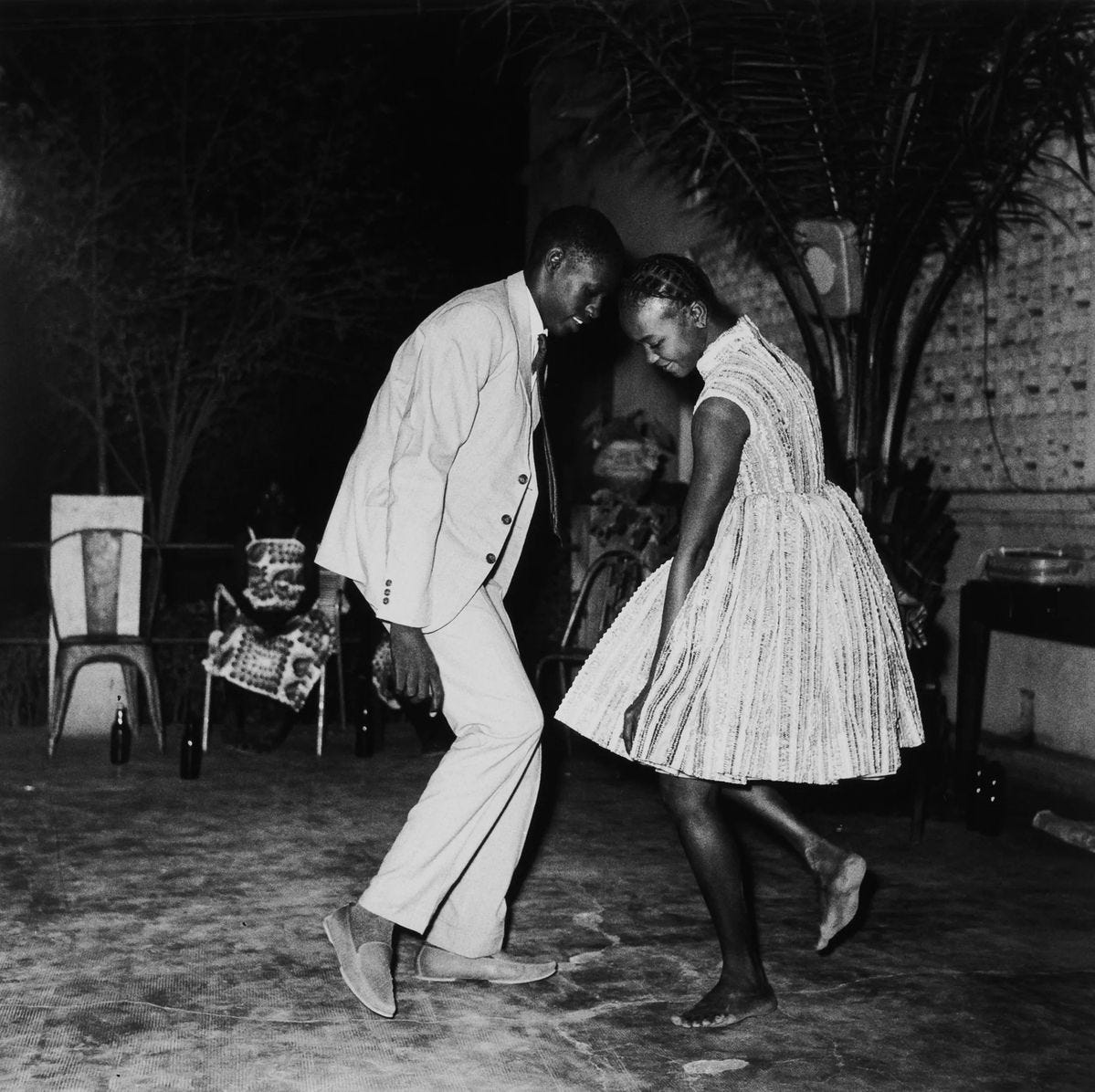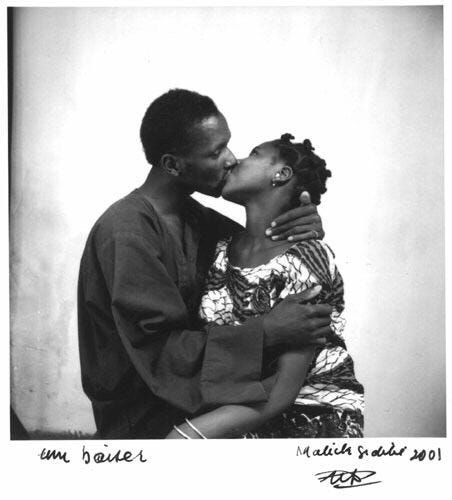When I really consider it, there aren’t many life matters that are not, at its core, a question of whether or not we are being good lovers. Society’s problems with war, justice, life, death, and the human condition are all resolved by a commitment to love. In the way that bees pollinate plants or earthworms decompose the soil, I believe that humanity’s function within our ecosystem is loving action.
However, many of us are not being good lovers because our understanding is limited. We assume love to be affectionate feeling and care, but when we examine the definition theorized by social psychologist Erich Fromm and later adopted by bell hooks in All About Love, we see that love goes deeper than that.
Here is their definition below.
…love as “the will to extend one’s self for the purpose of nurturing one’s own or another’s spiritual growth.”
— bell hooks, All About Love
Further to this definition, hooks continues that love is affectionate care, respect, commitment, recognition, honesty, open communication, and trust. All of these factors must be present in a loving relationship for the people involved to experience the transformative power of love. It is an active practice that pledges a commitment to another’s happiness. When we assume that love just is, in a capitalist society that places value on things like money, power, and control, we run the risk of being antithetical to love. In other words, we reject our humanity.
In fact, this rejection of the soul is already present in Western culture where lovelessness is pervasive. We are increasingly more violent and less empathetic when it comes to matters of civil rights. We see the problems of others as separate from our own, and do not require loving action in public sectors like politics or the workforce. Some of us don’t even believe that loving action should be the core function of our society. Instead, an allegiance to money and power, to the winners and the losers, the haves and the have-nots, is present.
Without love at the forefront, we are stripped of our inherent right to life, liberty, and the pursuit of happiness. Without love, we cannot fulfill our life’s mission. Love gives us the strength, courage, and wisdom to move towards our purpose. In some religions there is the belief that humans are manifestations of the Source, and if that’s true, then I believe love is the wisdom of that Source. It is the list of coordinates we find in our pocket. The tether between us and the Divine. The thing that allows us to overcome our narcissism and illusion of separateness.
In my adolescence, I felt a profound sense of lovelessness that followed me into adulthood. Recalling my formative years as a child, my parents showed me care that I intellectualized as love, but admittedly felt disconnected from. Loving language or behavior was withheld and reserved for only extraordinary occasions like A’s on exams or accumulating some form of merit or accolade. We weren’t encouraged to speak about our vulnerabilities or unmask ourselves. Learning about love’s definition later in life, I came to understand that my primary experience lacked in recognition, trust, and open communication.
In my early twenties when I began dating with the intention to love, I was confronted with all the ways I had lacked the ability to. The love that we are able to share with others stem from the love that we are able to share with ourselves, and for me, that love was not fully actualized. I struggled with feelings of shame around who I was, and this shame prevented me from giving myself sustained friendship, compassion, and loyalty. These patterns were then replicated in my intimate relationships. I was distrustful and terribly awful at working through conflict. Out of a wish to not cause harm, I would find refuge in isolation.
In this isolation, it became more difficult to believe that love was possible for me. I felt severed from my heart space in the few interactions I allowed, and experienced bouts of depression, anxiety, and hopelessness. I desired the loving relationships I saw on TV or instagram, all the while thinking it would never come. It was a challenging existence that I wanted to be free from, but had no idea how to do so.
The reality is, we are not born knowing how to love. Babies instinctually respond to affection and have the potential to love, but this ability is developed by modeling the love received from our parents and caregivers. For those of us born into families where love is not fully realized — where fear, abuse, and control are present instead — we grow up feeling broken and unable to connect to ourselves and the world around us.
To society’s demise, there aren’t many other opportunities outside of the home space where one can learn a healthy loving practice, and many of us live entire lives never knowing love’s embrace. My hope is that someday, someone will open the first school of love here in New York City. And then tens and thousands of love schools will pop up all around the globe. And people of all ages will attend and learn how to cultivate a loving life. My hope is that the culture will place more of an emphasis on the practice of love — one that nurture’s each other’s spiritual growth. Until then, I will write about it.
As I get older, the phrase “life is a gift” resonates more and more. To be born into this world as a human being with limitless potential, is a gift. But not all of us know how to access this potential. I believe the pathway is illuminated by love. Love truly is the answer!
So, how do we get better at love? Thinking back to Fromm’s definition — the will to nurture one’s own and another’s spiritual growth — I would like to leave you with some examples below.
Honest & Open Communication
Dialogue is the bridge between separateness and community. Through honest and open communication, we slowly unmask ourselves to one another and allow for our hearts to be touched. When our communication is guarded, calculated, or dishonest, we build walls around our hearts and keep those around us at bay. Love then, can never flourish.
Knowledge & Curiosity
To nurture our own or another’s spiritual growth, we have to be knowledgable about who they are. Through genuine curiosity for ourselves and others, we open the pathway to love. Asking about our goals, our fears, our desires, is how we begin to move towards one other. When we ask others to share who they are with us, we give them an opportunity to affirm their humanity.
Supportive Language & Action
The external world is made up of the things we say and do. No matter how much we might think we love, without supportive language and action, that love is incomplete.
Consistent Care & Commitment
When love is strongest, it is consistent and reliable. It is always present, even when things are difficult. It is devotional. Creating a soft landing place for ourselves and each other is how we nurture growth.
Respect & Autonomy
When we nurture someone’s growth, we give them the freedom to be who they are. We do not place limitations or restrictions on their genuine happiness. We allow them to exist wholly. We give ourselves this freedom too. We cultivate a whole self that loves without clinging.
“The light of love is always in us, no matter how cold the flame. It is always present, waiting for the spark to ignite, waiting for the heart to awaken and call us back to the first memory of being the life force inside a dark place waiting to be born—waiting to see the light.”
—bell hooks
P.S. - a bonus list of things that I once thought were love, but absolutely aren’t.
Love Isn’t—
Premature acts of extreme loyalty or commitment
Unspoken truths in an effort to preserve feelings
Coercion
Suggesting that someone close to you might be jealous of you
Violence and cruel punishment
Lying in any case, but especially to maintain a false image and power
Asking that they change for you
Until next time…x




